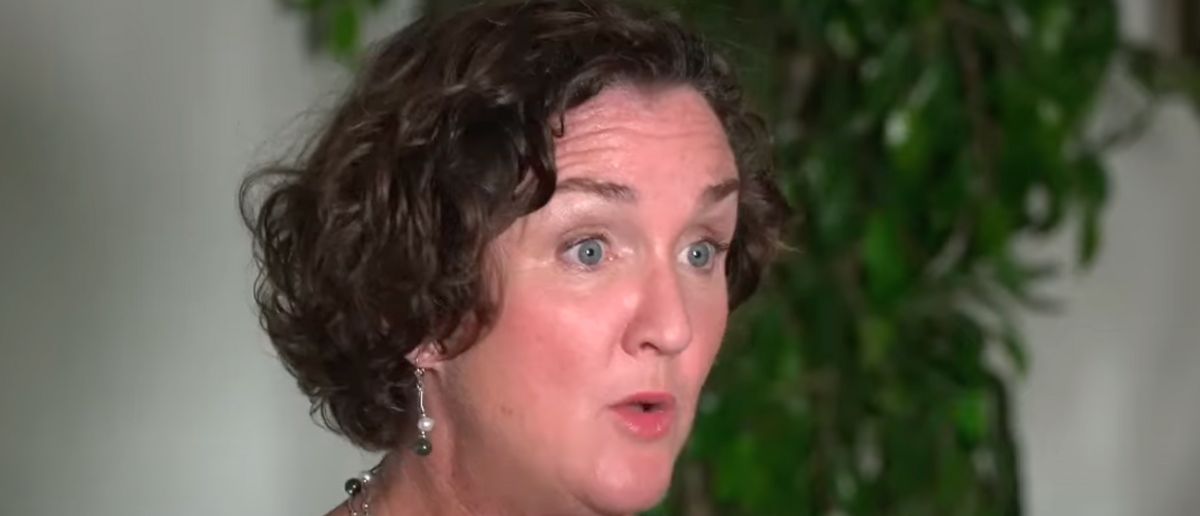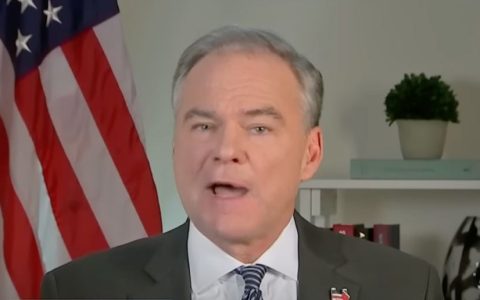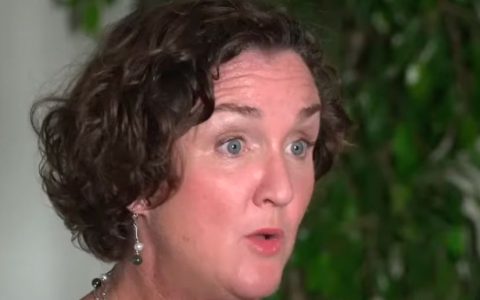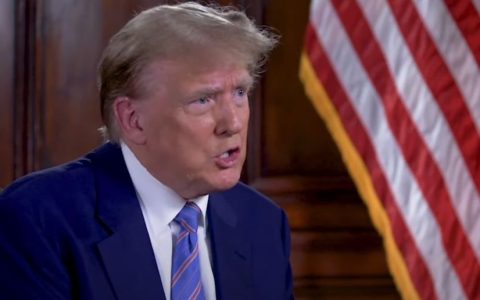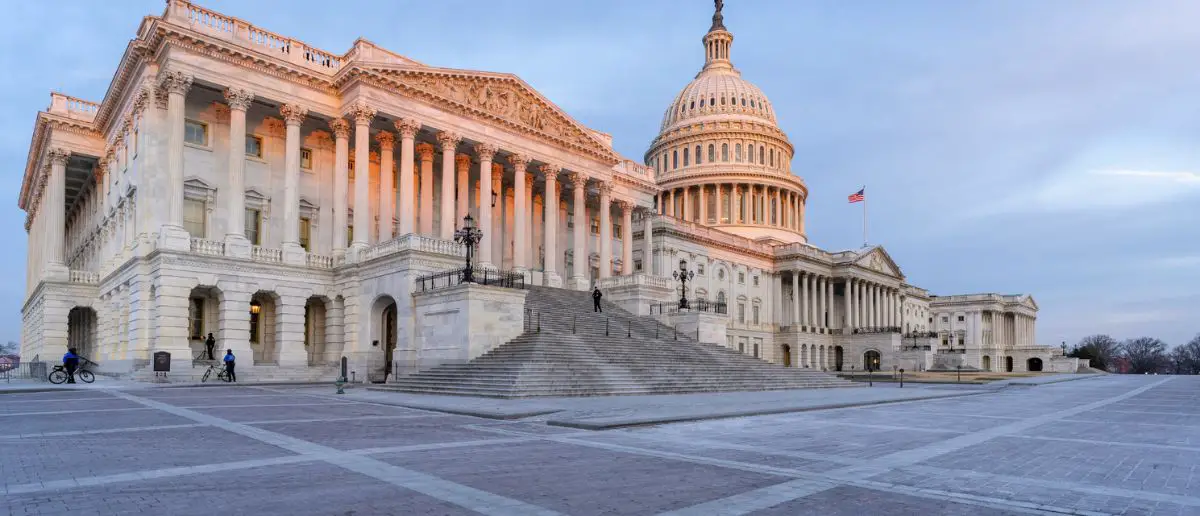
Political violence is on the rise. It’s getting out of control.
And now a U.S. Congressmember is involved in a tragic shooting in Washington, D.C.
Shooting Claims Life of Congressional Intern in Washington, D.C.
A 21-year-old congressional intern working for Rep. Ron Estes (R-Kansas) was fatally shot near a downtown Washington, D.C. transit station. The victim, identified as Eric Tarpinian-Jachym from Granby, Massachusetts, was shot on Monday and succumbed to his injuries on Tuesday despite medical efforts to save him, according to WTOP News.
Authorities believe Tarpinian-Jachym was not the intended target of the attack. Police reported that multiple suspects emerged from a vehicle and opened fire on a group of people, striking Tarpinian-Jachym, a 16-year-old boy, and a woman. Both surviving victims were hospitalized for treatment.
Investigators later located the vehicle used in the shooting in Prince George’s County, Maryland, as reported by WUSA. While no suspects have been named, police have indicated they have leads and are actively pursuing those responsible.
Tarpinian-Jachym began his internship with Rep. Estes’ office last month. A rising senior at the University of Massachusetts at Amherst, he was studying finance with a minor in political science.
Rep. Estes released a statement expressing his grief, noting Tarpinian-Jachym’s warm personality and dedication. “His kind heart and cheerful smile brightened our office,” Estes said. “We are deeply grateful for his service to Kansas’ 4th District and the nation. Susan and I ask for prayers for his family and for their privacy during this tragic time.”
The United States is grappling with a troubling increase in politically motivated violence, a trend that has escalated in recent years, shaking the foundations of public safety and democratic discourse. From targeted attacks on public officials to ideologically driven assaults, these incidents highlight a growing willingness to use violence to express political grievances. This surge is fueled by deepening polarization, inflammatory rhetoric, and the proliferation of online platforms that amplify extremist views, creating a volatile environment where ideological differences turn deadly.
A stark example of this trend occurred on May 21, 2025, when Elias Rodriguez, a 31-year-old Chicago resident, fatally shot two Israeli Embassy staffers, Yaron Lischinsky and Sarah Milgrim, outside the Capital Jewish Museum in Washington, D.C. Rodriguez, who shouted “Free, free Palestine” during his arrest, admitted to the shootings, stating he acted “for Palestine” and “for Gaza,” according to court documents. The attack, investigated as a hate crime and act of terrorism, targeted a couple attending a diplomatic event.
The D.C. shooting continues an unfortunate pattern of violence linked to the Israeli-Palestinian conflict’s reverberations in the U.S. Since the Hamas attack on Israel on October 7, 2023, tensions have spiked, with pro-Palestinian protests often clashing with accusations of antisemitism. Rodriguez’s alleged manifesto, “Escalate for Gaza, Bring the War Home,” accused Israel of genocide and framed the attack as a political protest, highlighting how global issues can inspire local acts of violence. Critics argue that rhetoric like “Free Palestine” can radicalize individuals.
This incident is not isolated. The U.S. has seen a string of politically charged attacks in recent years. In July 2024, an assassination attempt on President Donald Trump at a Pennsylvania rally left one supporter dead and two injured. In September 2024, another individual was arrested near Trump’s Florida golf course with a rifle, though his motives remain unclear. These events, alongside the D.C. shooting, illustrate a spectrum of ideological motivations driving violence, from far-right conspiracies to far-left activism.
Other examples include the April 2025 arson attack on Pennsylvania Governor Josh Shapiro’s mansion, where the suspect expressed hatred for the Democratic governor, and the December 2024 shooting of UnitedHealthcare CEO Brian Thompson by Luigi Mangione, motivated by anger at the U.S. healthcare system. These cases highlight how single-issue frustrations—whether healthcare, immigration, or foreign policy—can escalate into deadly acts when fueled by ideological echo chambers.
The rise in political violence is compounded by the accessibility of firearms and the deregulation of gun laws in many states, making it easier for individuals to act on radical impulses. The U.S. has a higher homicide rate than other developed nations, and mass shootings have become alarmingly routine. Experts note that online platforms amplify dehumanizing rhetoric, creating environments where violence is normalized or even celebrated among fringe groups.
Historical parallels provide context for this trend. Political violence has long been part of the American story, from the assassination of Abraham Lincoln to the 1970s Black Liberation Army attacks. However, the current wave is distinct in its diversity of motives and the role of digital amplification. Robert Pape, a political scientist at the University of Chicago, links recent violence to demographic shifts and economic inequality, which fuel narratives like the “Great Replacement” theory on the right and anti-Zionist fervor on the left.
The pro-Palestinian movement itself is diverse, with most activists advocating nonviolently for Palestinian rights. Groups like Jewish Voice for Peace and the U.S. Palestinian Community Network condemn violence, emphasizing peaceful protest and civil disobedience. However, a small faction has embraced armed resistance rhetoric, creating tensions within the movement and complicating public perceptions. The D.C. shooting has intensified debates over whether slogans like “Free Palestine” inherently incite violence, with critics arguing they can radicalize vulnerable individuals.
Responses to these incidents have varied. Political leaders across the spectrum, including President Trump and Israeli Prime Minister Benjamin Netanyahu, condemned the D.C. shooting as antisemitic, calling for stronger measures against hate-driven violence. Meanwhile, pro-Palestinian politicians like Reps. Ilhan Omar and Rashida Tlaib denounced the attack, emphasizing that violence undermines their cause. The American Jewish Committee and other groups have urged increased security for Jewish institutions, reflecting heightened fears within the community.
Law enforcement faces challenges in addressing this rise in violence. The FBI and local police are investigating the D.C. shooting as a targeted act, with potential terrorism charges pending. Interim U.S. Attorney Jeanine Pirro noted the case’s eligibility for the death penalty, signaling a robust legal response. Yet, preventing such acts remains difficult, as lone actors like Rodriguez often act spontaneously, driven by personal grievances amplified by online rhetoric.
Political scientist Lilliana Mason warns that rising partisan animosity and violent rhetoric erode trust in institutions. When political discourse becomes a battleground for dehumanizing language, it fosters an environment where violence is seen as a legitimate tool for change.
Efforts to curb political violence require addressing root causes: polarization, misinformation, and economic disparities. Strengthening gun control measures, regulating online hate speech, and promoting dialogue across ideological divides could mitigate risks. However, these solutions face resistance in a deeply divided nation, where even calls for unity are often politicized.
The D.C. shooting and similar incidents serve as grim reminders of the consequences of unchecked radicalization. Yaron Lischinsky and Sarah Milgrim, described as a couple dedicated to peace-building, were k*lled in an act that sought to disrupt rather than unite. Their deaths, like that of Eric Tarpinian-Jachym, highlight the human toll of this growing crisis.
Civil society must grapple with balancing free speech and public safety. While protest chants like “Free Palestine” are protected under the First Amendment, their misuse by extremists raises questions about accountability. Legal experts caution against equating such rhetoric with incitement, as it risks suppressing legitimate dissent. Yet, the line between advocacy and radicalization remains thin, requiring nuanced responses.
Stay tuned to the DC Daily Journal.

